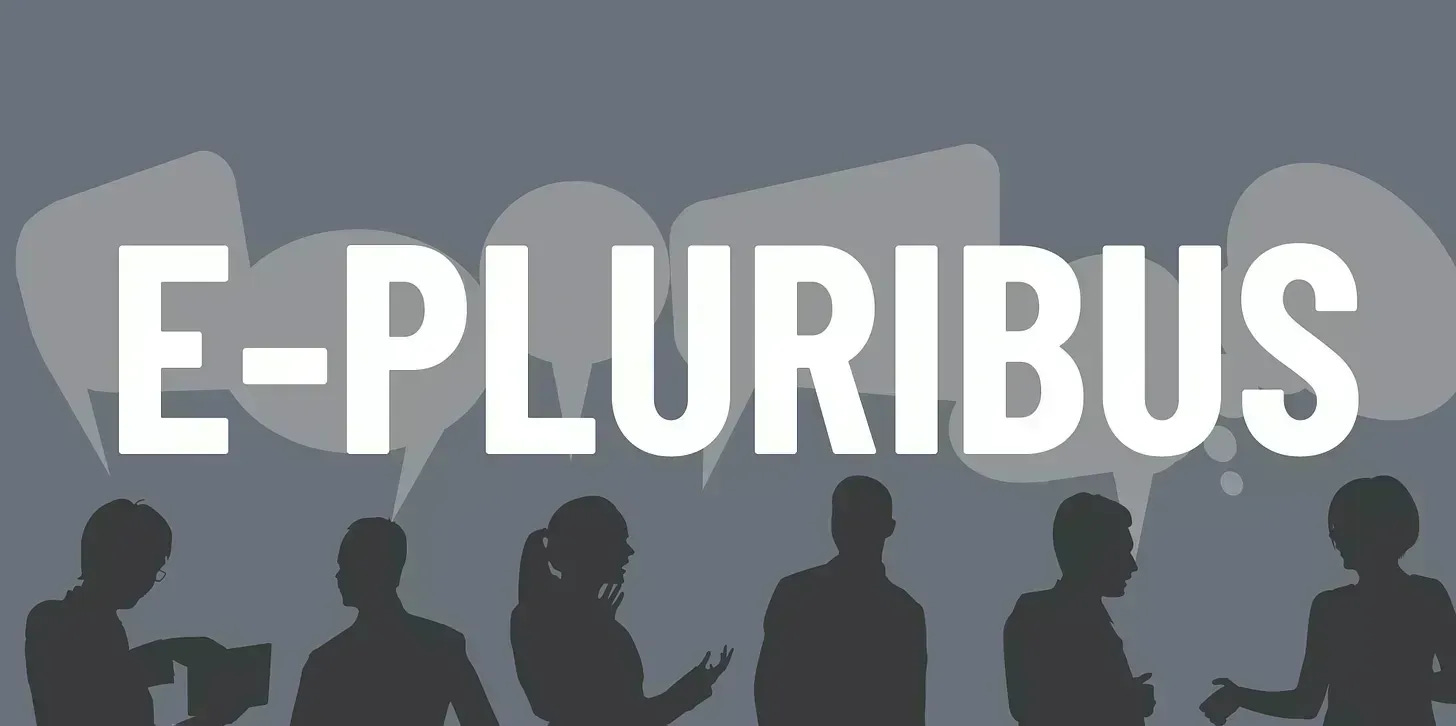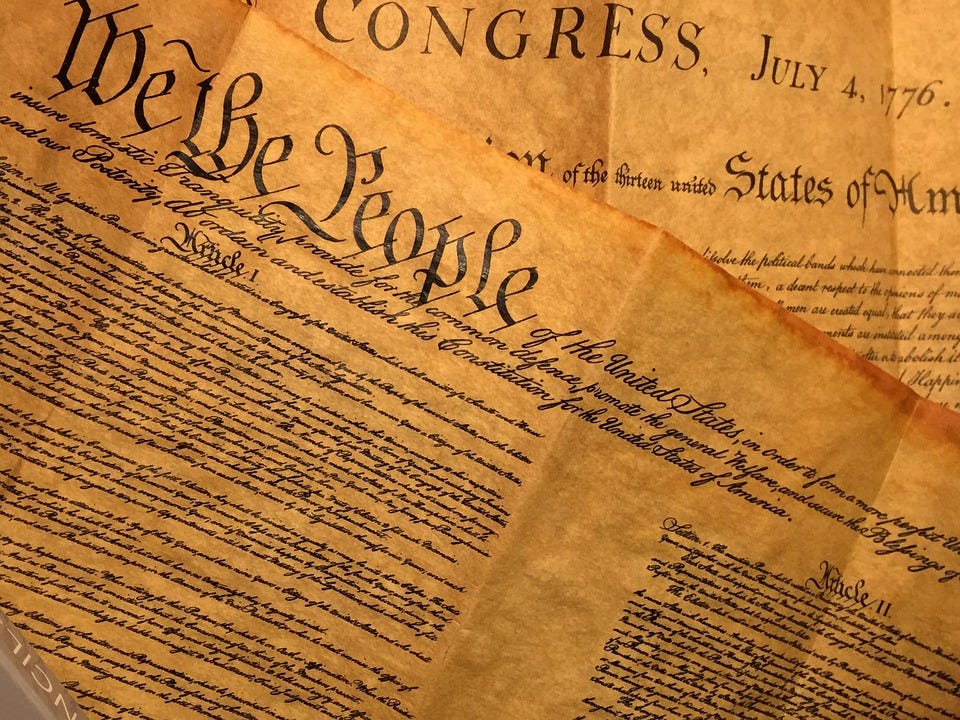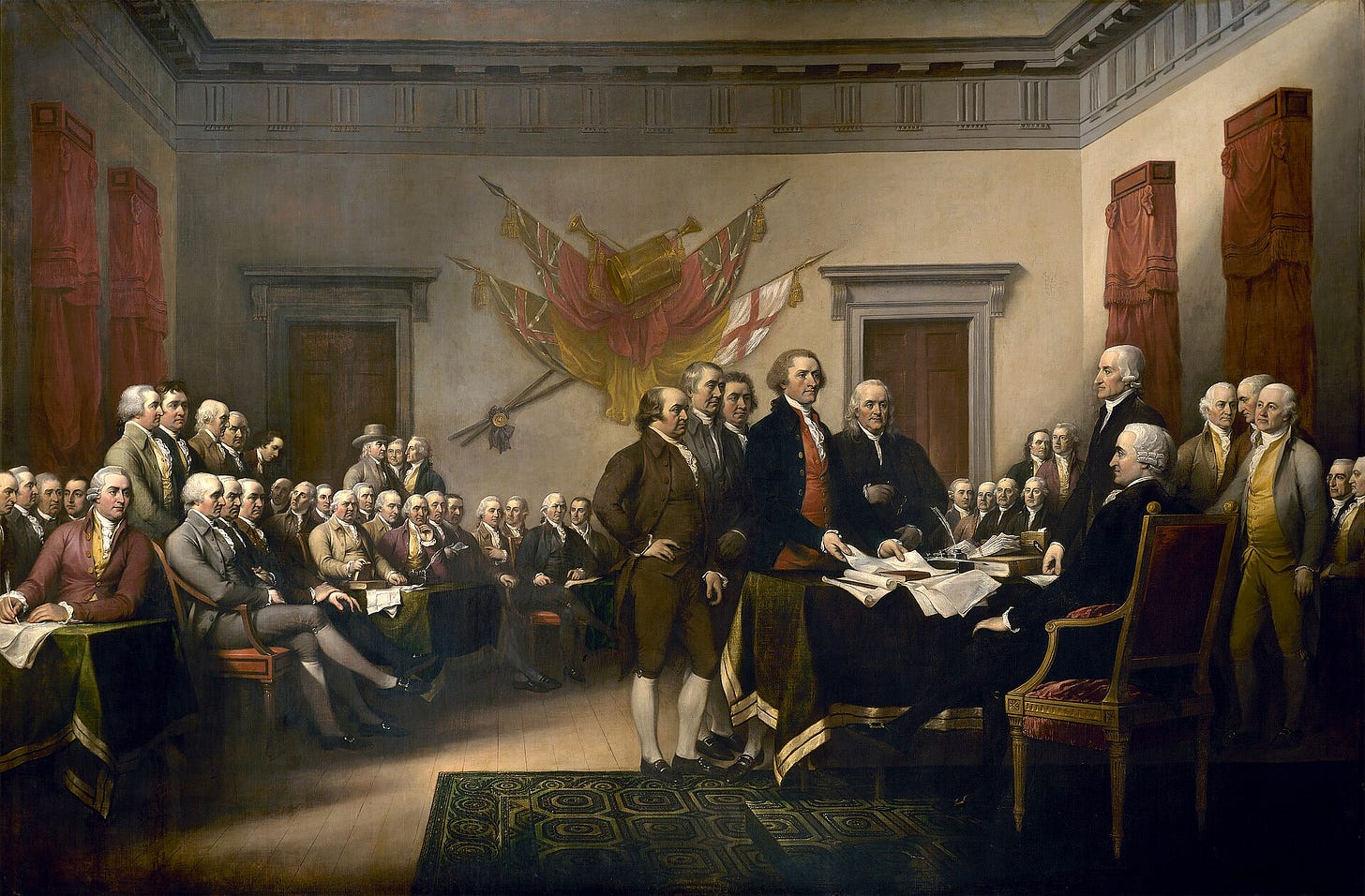E-Pluribus |June 23, 2025
Antisemitism Awareness Act threatens 1A. Colorado keeps trashing free speech. University protects white nationalist rhetoric.
A round-up of the latest and best musings on the rise of illiberalism in the public discourse:
Rand Paul: Fighting Antisemitism Should Not Come at the Expense of the First Amendment
There’s been an alarming increase in antisemitic rhetoric online in recent years. While acknowledging and repudiating this reprehensible trend, Senator Rand Paul rejects the pending Antisemitism Awareness Act as a grave threat to free speech:
Despite the increase in antisemitism, it is still inappropriate for the United States Senate to respond by imposing sweeping restrictions on constitutionally protected speech. That's exactly what the Antisemitism Awareness Act threatens to do.
During a recent markup in the Senate Health, Education, Labor, and Pensions (HELP) Committee, I opposed this legislation—not because I take antisemitism lightly, but because I take the First Amendment seriously. This bill poses a grave threat to free speech, as it would grant unelected federal bureaucrats the authority to police speech, theology, and political thought, particularly on college campuses.
The bill requires the Department of Education, when investigating discrimination under Title VI of the Civil Rights Act, to apply the working definition of antisemitism devised by the International Holocaust Remembrance Alliance (IHRA). This is not symbolic. Schools and universities found to have permitted discriminatory harassment may lose federal funding. That means institutions could be punished for what students or professors say, especially when those views involve the Israeli government, Jewish history, or religious doctrine.
The IHRA definition of antisemitism is overly broad. Using this definition would regulate speech that that "den[ies] the Jewish people their right to self-determination," "draw[s] comparisons of contemporary Israeli policy to that of the Nazis," or "appl[ies[ double standards by requiring of [Israel] behavior not expected or demanded of any other democratic nation." These are political arguments. Whether one agrees or disagrees, they are constitutionally protected speech. Debating the actions of foreign governments or the details of religious history is not hate speech—it's the exercise of free inquiry.
Should speech that advocates a one-state solution or secular governance in Israel be banned? Would comparing Israeli policies to historical state violence be treated as a federal civil rights violation? If that's the new standard, what do we make of the countless times Democrats have compared President Donald Trump to Hitler?
The bill also opens the door to federal interference in religious expression. The IHRA's working definition includes specific examples of actions the organization considers antisemitic, including "claims of Jews killing Jesus." This topic is found in Scripture and discussed in religious contexts. Would quoting the Gospel of John, which recounts Jesus' crucifixion and the roles of Jewish leaders, now be investigated as a civil rights violation? Would pastors or seminary professors be punished for citing these texts?
Sarah Parshall Perry: The First Amendment is Again in Colorado’s Crosshairs
The US Supreme Court has repeatedly prevented states from restricting protected speech. Colorado doesn’t seem to care, though. The state’s expansive civil rights rules still punish people for making “offensive” statements in public. At The Federalist Society, Sarah Parshall Perry, VP of Defending Education, is fed up. Her group is leading a lawsuit to finally halt Colorado’s assault on the First Amendment:
Colorado’s Antidiscrimination Act (CADA) requires, among other things, equal access to places of public accommodation regardless of disability, race, creed, color, sex, sexual orientation, marital status, family status, religion, national origin, ancestry, gender identity, or gender expression. Places of public accommodation are defined broadly to include any place offering sales, services, or facilities to the public.
But Colorado’s recent amendment to CADA—House Bill 25-1312—does not simply regulate access to public accommodations. It regulates speech within those accommodations. Specifically, the new law revises the definition of “gender expression,” a protected category in Colorado law, to punish anyone operating within a public accommodation who declines to use someone’s “chosen name” or other terms by which they “choos[e] to be addressed,” like preferred pronouns. In other words, even if you firmly believe that sex and gender are immutable, Colorado requires you to use language affirming transgender identity.
What’s more, CADA also contains vague provisions punishing anyone who “directly or indirectly” publishes, sends, or distributes “any” statement that makes someone feel their presence is “unwelcome, objectionable, unacceptable, or undesirable” in a place of public accommodation based on their “gender expression” or any other protected category. These subjective prohibitions do not define any of their key terms. Instead, they leave Coloradans to simply guess what kinds of statements Colorado’s highly politicized Civil Rights Commission will consider “offensive” or “unwelcoming.” That is a recipe for chilled speech if there ever were one.
…
That’s why our organization, Defending Education, is suing the State of Colorado. Joining us in the lawsuit are Do No Harm (a gender-critical medical association), two Colorado parental rights organizations, and two Colorado physicians. We—and they—ascribe to the notion of sex as fixed at birth and don’t want to be forced to lie, remain silent, or subject to prosecution by the Colorado Civil Rights Commission simply for expressing what we believe.
Richard Fausset: A White Nationalist Wrote a Law School Paper Promoting Racist Views. It Won Him an Award.
Write a white nationalist term paper…get an award for outstanding scholarship? That scenario recently played out at the University of Florida, where a law student argued, apparently in persuasive terms, that the Constitution’s framers intended the phrase “We the People” to refer only to white people. The scandal has sparked an incendiary debate about protecting unpopular speech, as the New York Times reports:
Preston Damsky is a law student at the University of Florida. He is also a white nationalist and antisemite. Last fall, he took a seminar taught by a federal judge on “originalism,” the legal theory favored by many conservatives that seeks to interpret the Constitution based on its meaning when it was adopted.
In his capstone paper for the class, Mr. Damsky argued that the framers had intended for the phrase “We the People,” in the Constitution’s preamble, to refer exclusively to white people. From there, he argued for the removal of voting rights protections for nonwhites, and for the issuance of shoot-to-kill orders against “criminal infiltrators at the border.”
Turning over the country to “a nonwhite majority,” Mr. Damsky wrote, would constitute a “terrible crime.” White people, he warned, “cannot be expected to meekly swallow this demographic assault on their sovereignty.”
At the end of the semester, Mr. Damsky, 29, was given the “book award,” which designated him as the best student in the class. According to the syllabus, the capstone counted the most toward final grades.
…
Mr. Damsky’s argument that at least some of the framers meant for the Constitution to apply only to white people is by no means a new one. Evan D. Bernick, an associate law professor at Northern Illinois University, notes that the argument can be found in the Ku Klux Klan’s founding organizational documents from the late 1860s.
Among originalists, though, this interpretation has been widely rejected. Instead, conservatives have argued that much of the text of the Constitution “tilts toward liberty” for all, said Jonathan Gienapp, an associate professor of history and law at Stanford. They also note that the post-Civil War amendments guaranteeing rights to nonwhite people “washed away whatever racial taint” there was in the original document.
Around X
Speaking of controversial speech, the Foundation for Individual Rights and Expression (FIRE) defends live-streamers who recorded themselves insulting police officers during an immigration protest in Las Vegas.
Greg Lukianoff exposes some of the cheap rhetorical tricks universities have used to shut down legitimate criticisms of DEI programs and enforce “ideological orthodoxy.”
Foundation For Freedom Online’s Allum Bokhari argues that major advertising firms have functioned as powerful censors in recent years. By withholding their considerable resources from any company — most notably X — that platformed the “wrong” opinion, these ad giants wielded significant control over the flow of digital information, Bokhari asserts.









